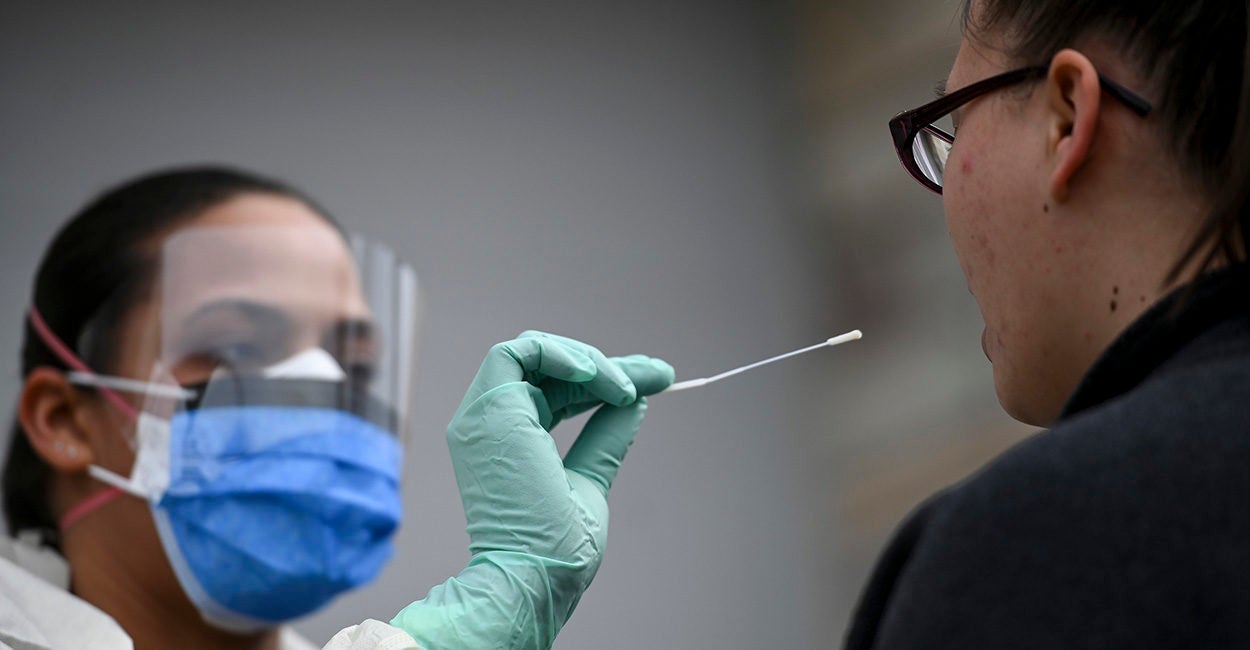As the markets have plummeted over global fears surrounding the fallout from the new coronavirus, political pundits have taken up the call: Find some meaning in the coronavirus outbreak and response. And where there is a demand for speculative opinion, there’s never a shortage of supply.
Thus we’ve seen the coronavirus, which originated in Wuhan, China, be blamed on President Donald Trump. We’ve seen government-managed response, which has varied widely in terms of success by country, touted as a final rebuttal of libertarian precepts. We’ve seen the coronavirus’ economic impact cited as a rationale for breaking global supply chains and pursuing industrial autarky instead.
None of these takeaways are particularly compelling. The Trump administration’s response has been about as strong as prior federal attempts to deal with public epidemics, ranging from SARS to swine flu. While Trump himself hasn’t exactly projected a sense of calming administrative competence, those around him, ranging from Dr. Anthony Fauci of the National Institute of Allergy and Infectious Diseases to U.S. Surgeon General Dr. Jerome Adams, are fully capable of performing as needed.
Libertarianism does not suggest that collective action ought to be out of bounds in the case of public emergencies with serious externalities—few libertarians oppose police departments or proper environmental regulations, for example—and the record of government competence has been, at best, rather mixed. The solution to vulnerable supply chains running through authoritarian countries is, first, for Western countries to consider security threats when formulating trade policy, and second, for companies to harden their supply chains by diversifying those chains even further.
So, what are the real lessons to be learned from the coronavirus?
First, we should favor governments that are transparent in their distribution of information.
China has been celebrated for its extraordinary crackdown on public life, which has brought transmissions down dramatically. But if it were not for China’s propagandistic efforts to quash news about the coronavirus in the first place, the epidemic probably would not have become a pandemic.
Second, we must stop humoring anti-scientific rumormongering about issues like vaccines. The curbing of the coronavirus will be reliant on the development of a vaccine, and Americans should understand that vaccines work, and that misinformation about vaccinations should generally be rejected.
Third, we should remember that crises exacerbate underlying issues; they rarely create them.
Economic volatility in the aftermath of the coronavirus has merely exposed the underlying weaknesses of the Chinese and European economies; those systemic problems won’t be solved through Band-Aid solutions. The public health issues with homelessness will likely be exposed dramatically in the United States; they won’t go away when the coronavirus ends. The coronavirus should underscore the necessity for action in the absence of crisis.
Finally, we should remember that charity and local community support matter. Large-scale government response will never be as efficient or as personal as local response. Care for our neighbors. Care for our families. Implement personal behavior that lowers risk. And then wait for more information. Perhaps that’s the best lesson from all of this: Jumping to conclusions based on lack of information is a serious mistake.
Ben Shapiro is host of "The Ben Shapiro Show" and editor-in-chief of DailyWire.com. He is The New York Times best-selling author of "Bullies." He is a graduate of UCLA and Harvard Law School, and lives with his wife and two children in Los Angeles.
COPYRIGHT 2020 CREATORS.COM
the disorder of the world. - Karl Barth
*Representative name or photo used to protect identity.








No comments:
Post a Comment